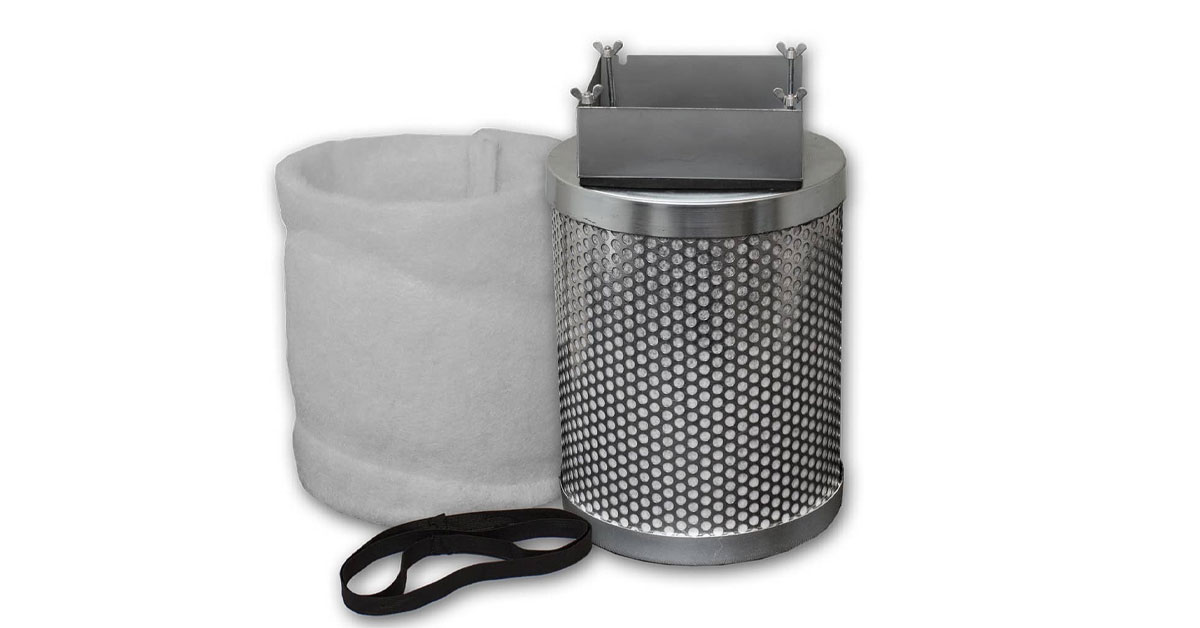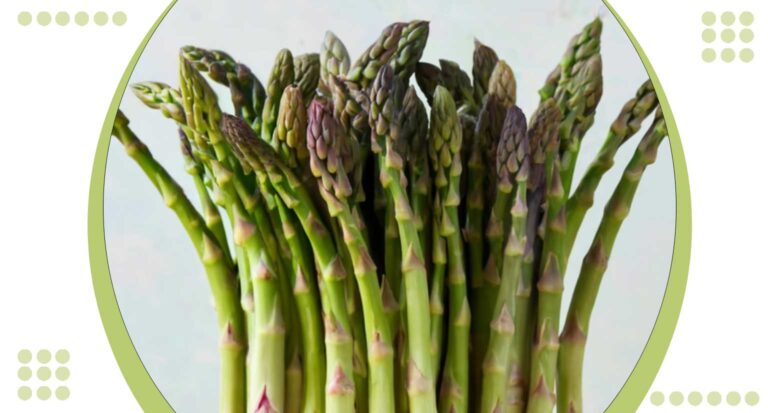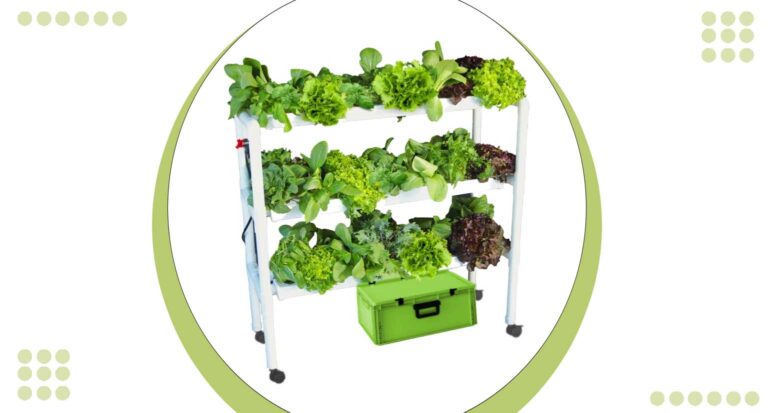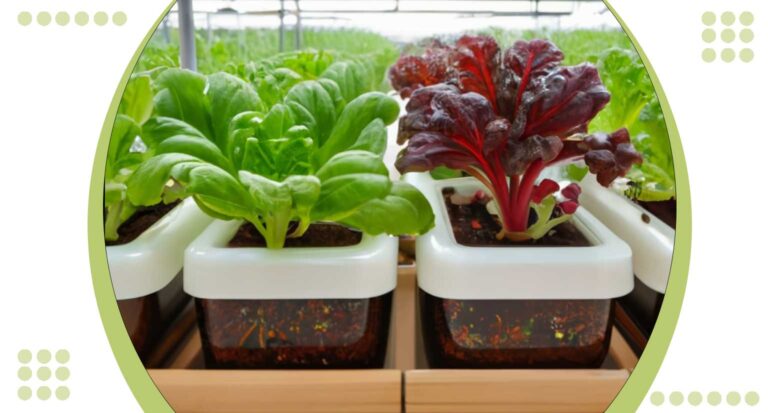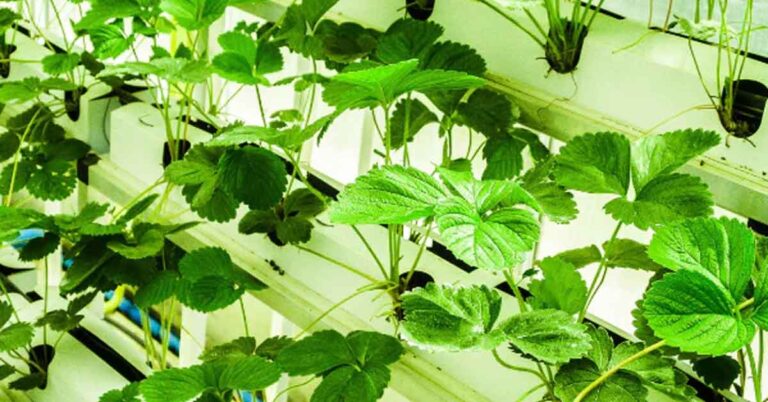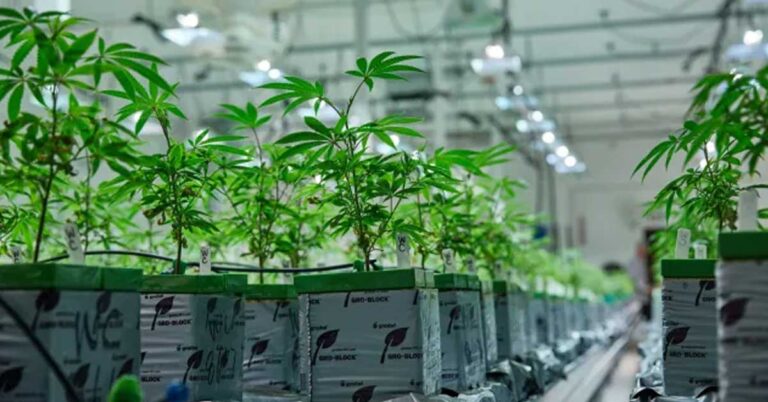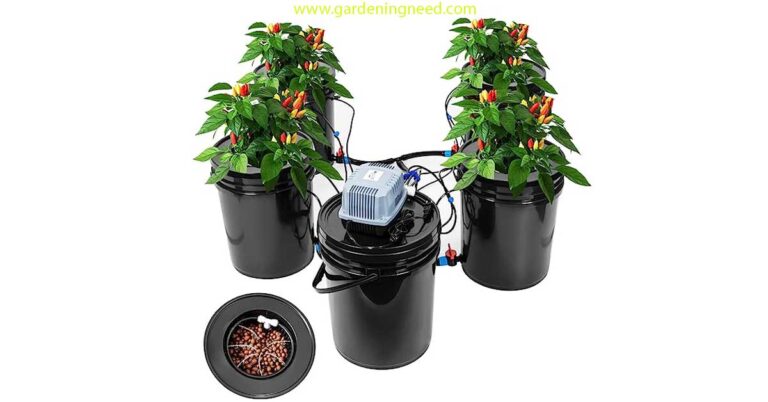What is a Hydroponic Carbon Filter?
A hydroponic carbon filter, often referred to as a carbon scrubber, is a crucial component in indoor gardening and hydroponic setups.
This device uses activated carbon to filter and purify the air, removing undesirable odors and potentially harmful gases from the growing environment.
The porous nature of activated carbon allows it to absorb a wide range of volatile organic compounds (VOCs), contributing to a healthier and more controlled growing condition for the plants.
How Does it Work
A hydroponic carbon filter works by leveraging the adsorption properties of activated carbon.
Air is drawn into the filter through a fan and then passed over the activated carbon. The carbon’s large surface area and porous nature allow it to capture and store the VOCs and other impurities present in the air.
These impurities bond with the carbon particles, effectively removing them from the circulating air.
The purified air is then released back into the growing environment, ensuring that the plants are exposed to clean, fresh air that is free from any harmful gases or unpleasant odors.
Benefits of Installing A Hydroponic Carbon Filter
Installing a hydroponic carbon filter yields numerous benefits. The primary advantage is the creation of a healthier environment for plant growth.
By eliminating harmful VOCs and other gaseous pollutants, it ensures cleaner air circulation, which is essential for optimal plant health.
Furthermore, it eradicates unpleasant odors, providing a more pleasant indoor gardening experience.
This is particularly beneficial for urban gardeners or indoor cultivators who need to maintain a neighbor-friendly environment.
The efficiency of hydroponic carbon filters also contributes to their overall cost-effectiveness.
Despite their initial cost, these filters can operate for extended periods before the activated carbon needs replacement, making them a sustainable choice for long-term indoor gardening.
Types Of Filters Used In Hydroponic Systems
In hydroponic systems, several different types of filters are utilized to maintain optimal growing conditions.
Mechanical Filters
Mechanical filters help remove solid impurities from the water used in hydroponic systems. These impurities might include dirt, plant debris, and other particulates that can obstruct the normal flow of water and nutrients.
Biological Filters
Biological filters are used in aquaponics, a specific type of hydroponic system. These filters house beneficial bacteria that convert fish waste into nutrients usable by the plants.
Reverse Osmosis Filters
These filters are used for purifying the water used in hydroponic systems. They can remove up to 99% of water impurities, including heavy metals and chemicals, resulting in clean and safe water for plants.
UV Filters
UV filters utilize ultraviolet light to kill bacteria, viruses, algae, and other harmful microorganisms in the water, ensuring a sterile growing environment.
Installation Tips for A Hydroponic Carbon Filter
When installing a hydroponic carbon filter, there are several key considerations to ensure the device operates at peak efficiency:
Location
The filter should be mounted at the highest point in your grow room or tent. As hot air, along with odors and impurities, tends to rise, placing the filter at this point will allow the most effective intake and filtration.
Airflow Direction
Ensure you install the filter in the correct direction of airflow. This is typically from the inside to the outside of the filter.
Seal the Filter
Make sure the filter is properly sealed to the ducting and the fan. Any leaks could allow unfiltered air to escape into your grow room.
Maintain Regularly
Over time, the activated carbon in the filter will become full and less effective at absorbing pollutants. It’s important to check the filter regularly and replace the carbon when necessary to maintain efficiency.
Handle with Care
Activated carbon is delicate and can easily be damaged. Handle the filter carefully during installation and avoid any unnecessary shaking or bumps.
Troubleshooting Common Issues with Hydroponic Carbon Filters
Despite their robust nature and efficiency, hydroponic carbon filters can sometimes present issues that may affect their performance.
Here are some common problems and their solutions:
Reduced Odor Control
If you notice that the filter is no longer effectively controlling odors, it may be time to replace the activated carbon. Over time, the carbon becomes saturated with absorbed pollutants and loses its effectiveness. Regular replacement ensures optimal performance.
Poor Airflow
If you observe a decline in airflow, check for clogs or blockages in the filter. Dust and other airborne particles can build up on the filter, restricting air movement. Regular cleaning can help prevent this issue.
Fan Noise
An unusual noise from the fan could indicate that it’s struggling to draw air through a clogged filter. Inspect the filter and clean or replace as necessary.
Leaks
If unfiltered air is escaping into your grow room, check for leaks in the seals between the filter, ducting, and fan. Tighten any loose connections and replace worn seals as needed.
The Best Brands to Buy for Maximum Efficiency and Quality
When it comes to purchasing a reliable and efficient hydroponic carbon filter, there are several brands that stand out due to their high quality and exceptional performance:
Phresh Filters
Phresh is renowned for its high-quality hydroponic carbon filters. They feature RC-48 activated, certified virgin carbon bed and unique “Anti Air Bypass” system, ensuring the maximum filtration of VOCs for an extended period.
iPower
iPower offers cost-effective carbon filters without compromising on quality. They are designed with 1050+ RC 48 Australian virgin charcoal granules that are known for their superior adsorption and longevity.
VIVOSUN
VIVOSUN carbon filters are recognized for their exceptional performance and durable construction. They feature 1050+ RC 48 Australian raw charcoal and come with a changeable velcro pre-filter and carbon filter belts.
TerraBloom
TerraBloom offers carbon filters with professional-grade build and high-efficient activated carbon. They are designed with machine-packed carbon enabling 100% filtered airflow.
Conclusion
In the realm of hydroponic gardening, carbon filters prove to be an indispensable tool. They not only aid in maintaining an odor-free environment but also contribute to the overall health and productivity of the plants.
With a variety of types available, it is crucial to select a filter system that best suits the specific needs of your hydroponic setup.
While the initial investment might seem considerable, the long-term benefits and the sustainability factor truly make it a worthwhile venture.
Brands like Phresh Filters, iPower, VIVOSUN, and TerraBloom are considered industry leaders, offering high-quality carbon filters that guarantee unparalleled performance.
With proper installation, maintenance, and troubleshooting, a hydroponic carbon filter can significantly enhance your indoor gardening experience.

